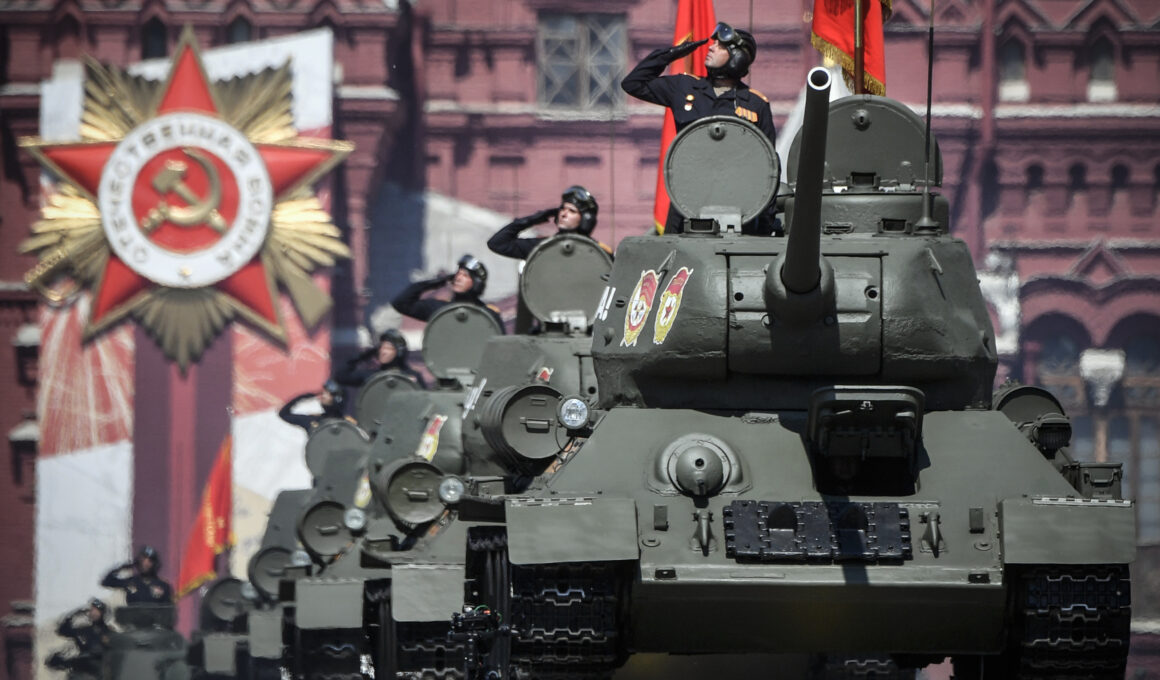NATO member state Lithuania is drawing up plans for a mass evacuation of civilians in preparation for the possibility of a war breaking out, the country’s Interior Ministry said.
The measures are the latest adopted by members of the NATO military alliance to protect against potential Russian attack.
Tensions between Russia and NATO have heightened throughout President Vladimir Putin‘s invasion of Ukraine. Moscow has accused the alliance of involvement in the war by providing Kyiv with military assistance and weapons, and Russian officials have floated striking member states in retaliation.
In response, the Baltic States—Latvia, Lithuania and Estonia—signed an agreement in January to create a common defense line with “anti-mobility infrastructure elements” to bolster NATO’s eastern border with Russia and Putin’s ally, Belarus.
Newsweek has contacted the Russian Foreign Ministry via email.
Lithuania’s Interior Ministry was cited by public broadcaster LRT as saying on Thursday that authorities should be prepared to relocate a quarter of the country’s population of 2.6 million—giving priority to pregnant women, families with young children, and people with disabilities.
Interior Minister Agne Bilotaite said she has been in touch with Lithuania’s neighboring countries about the plans, which should also include international transfers.
On July 5, Vilnius Mayor Valdas Benkunskas outlined some other measures that would allow the country to protect its civilians in the event of an attack, including developing a network of shelters.
“In the event of an air hazard, Vilnius residents can hide from possible shrapnel and ricochets,” he said.
Benkunskas said local authorities were also working to install warning sirens.
“The purpose of sirens has been very clear for many years, it is a sound signal emitted in outdoor public spaces to warn of danger,” the mayor said. “To date, 41 warning sirens have been installed in the city of Vilnius. They cover approximately thirty percent of the city’s territory.”
The mayor also highlighted the importance of being prepared for multiple scenarios.
“For example, what do we do if we have bombed bridges? If we have a case of sabotage, where a traffic incident is deliberately caused, who must respond and fix it so that traffic flows are not interrupted,” he asked.
“Organizational work is very important, who and which algorithms must be implemented so that everything goes smoothly and the residents of Vilnius can leave Vilnius within a few dozen or a dozen hours, if there is such a need,” Benkunskas added.
In neighboring Baltic state Latvia, anti-tank concrete pyramids, known as “dragon’s teeth,” are being installed along its border with Russia.
Dragon’s teeth, first used during World War II, are made of reinforced concrete and are used to impede the advances of tanks and mechanized infantry.
Latvia’s Ministry of Defense told Newsweek that countermobility obstacles are being “procured and transported to temporary storage areas near Latvia’s eastern border” in accordance with the Eastern Border Fortification and Counter-Mobility Plan, which was approved by the Latvian government on March 5.
“The obstacles will be set on the border according to the mentioned plan,” the ministry said.
Do you have a tip on a world news story that Newsweek should be covering? Do you have a question about the Russia-Ukraine war? Let us know via worldnews@newsweek.com.
Uncommon Knowledge
Newsweek is committed to challenging conventional wisdom and finding connections in the search for common ground.
Newsweek is committed to challenging conventional wisdom and finding connections in the search for common ground.








